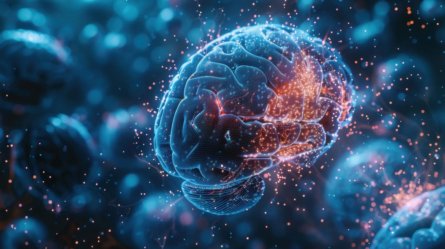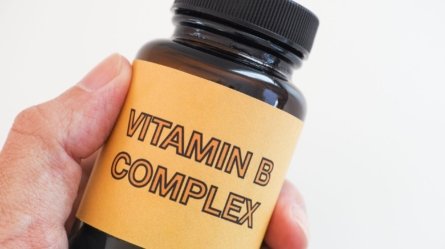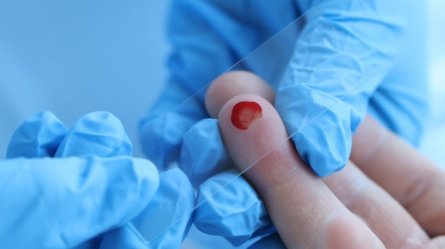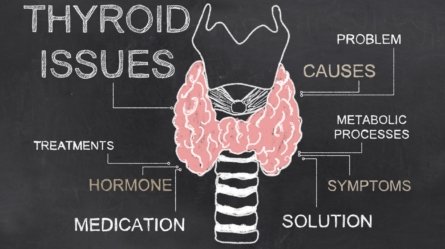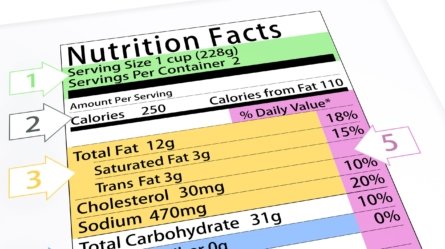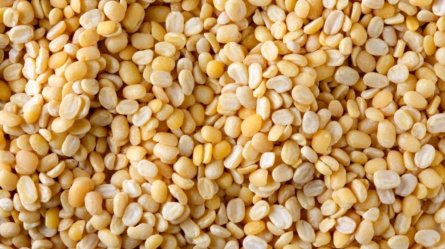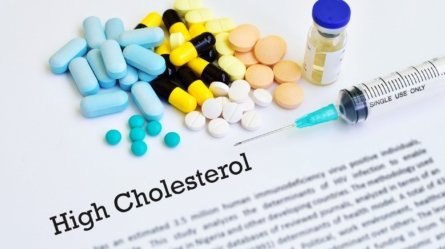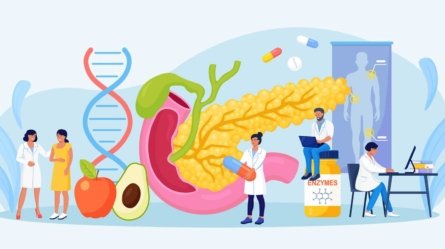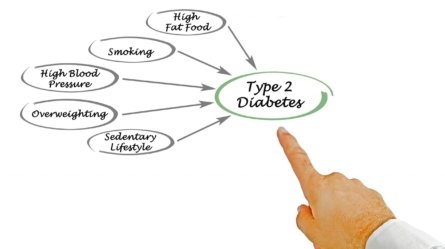Sleep is a fundamental aspect of human health, influencing everything from mood and cognitive function to physical well-being. Central to the regulation of sleep is the circadian rhythm, an internal clock that operates on a roughly 24-hour cycle, gov
The Sleep-Fertility Connection: Why Your Zzz’s Matter on the Journey to Conception
Sleep is a fundamental aspect of our overall health, and its impact on fertility is increasingly recognized. As couples embark on their journey to parenthood, understanding the connection between sleep and reproductive health can be crucial for enhan
Unlocking the Secrets to Restful Nights: Conquer Insomnia for Good!
Insomnia is more than just a fleeting annoyance; it can feel like a relentless storm that disrupts your nights and haunts your days. Picture this: you lie awake, tossing and turning, your mind racing through a whirlwind of thoughts—work deadlines, fa
The Surprising Connection Between Sleep and Inflammation
Sleep is essential for our overall health and well-being, but did you know that it also plays a crucial role in regulating inflammation in the body? Recent research has uncovered a fascinating link between sleep disturbances and increased inflammatio
Understanding Narcolepsy: What You Need to Know
Narcolepsy is a long-term sleep disorder that makes people feel extremely sleepy during the day and can cause sudden sleep attacks. This condition can disrupt daily life and make it hard to stay awake and alert. Learning about narcolepsy is important
Genetic Testing: Types, Procedures, and Accuracy in Nutrigenetics
Demystifying DNA: A Guide to Genetic Testing The code of life, our DNA, holds a wealth of information about our health and ancestry. Genetic testing has become increasingly popular, offering insights into our genes and potential risks for diseases.
Diabetes and Your Genes: How Genetics Can Help Manage Diabetes Better
Managing diabetes effectively is crucial for maintaining health and preventing complications. With advancements in medical science, particularly in the field of genetics, we now have tools that can help tailor diabetes treatments to individual needs.
The Booming Indian Healthcare Market: A 2024 Perspective
The Indian healthcare market has undergone a remarkable transformation in recent years, and as we look at the landscape in 2024, it's clear that this sector is not just growing – it's thriving. Let's dive into the key factors shaping this dynamic mar
Anticipating Progress: What to Expect in India’s NFHS-6 Compared to NFHS-5 Health Indicators
As India continues its journey towards improved public health and well-being, the upcoming National Family Health Survey-6 (NFHS-6) is eagerly anticipated. The previous survey, NFHS-5, provided crucial insights into the nation's health indicators. In
Diet and Exercise: Reversing the Clock? Can You Turn Back Time?
In a world where the quest for eternal youth and vitality is ever-present, many individuals are turning to diet and exercise as powerful tools to "reverse the clock." While we may not have the ability to turn back time literally, adopting a healthy l
Creating Sustainable Eating Habits
Creating sustainable eating habits is crucial for both personal health and the well-being of our planet. As food production significantly contributes to greenhouse gas emissions, adopting mindful eating practices can lead to substantial environmental
Monitoring and Adjusting Diet Plans as Needed: A Guide to Staying on Track
Starting a diet plan is a great first step toward achieving your health goals, whether it’s losing weight, improving fitness, or managing a specific health condition. However, it’s not just about following a set plan—it’s also about monitoring your p
Diabetes Management Made Simple: Your Essential Plan for Success
Diabetes is a growing public health concern, particularly in India, where the prevalence of the disease has reached alarming levels. According to the International Diabetes Federation (IDF) Diabetes Atlas, India is home to approximately 77 million ad
Technology and tools for diabetes management
Managing diabetes has evolved significantly thanks to advances in technology. From continuous glucose monitors (CGMs) to insulin pumps and smart insulin pens, managing blood sugar is now more convenient, accurate, and effective. Let’s explore how the
Stress management and mental health
Managing diabetes is more than just tracking blood sugar levels and following a diet plan; it’s a lifestyle shift that impacts both physical and mental health. Stress, in particular, plays a crucial role in how well diabetes is managed. As a dietitia
Exercise and Physical Activity for Diabetes: A Review of Research
Introduction Diabetes mellitus is a chronic disease characterized by high blood sugar levels. Regular physical activity is a cornerstone of diabetes management, offering numerous benefits. This review explores the scientific evidence supporting the
Nutrition and Meal Planning for Diabetes Management
Diabetes is a chronic condition that affects how your body produces or uses insulin, a hormone that helps regulate blood sugar levels. Managing diabetes involves a combination of medication, exercise, and healthy lifestyle choices. One crucial aspect
Personalized Diabetes Management Plans: A Tailored Approach
Diabetes is a complex condition that affects millions of people worldwide. Effective management requires a personalized approach that takes into account individual factors such as age, lifestyle, genetic predisposition, and underlying health conditio
The Hidden Threats: How the Microplastics and the Heavy Metals Cause Cancer and Ways to Protect Yourself
In today's fast-paced world, convenience often comes wrapped in plastic and powered by industrial processes. While these advancements have made life easier, they've also introduced silent threats into our environment - microplastics and heavy metals.
The Promise and Reality of Genome Sequencing: Beyond the Genome Card
A few decades ago, the world was abuzz with the possibilities of genome sequencing. The Human Genome Project had just mapped our DNA, and scientists and the public were all thrilled about what this meant for the future. There was a prevalent belief t
Genetic Testing: A Game Changer in the Fight Against Breast Cancer
Genetic testing has become a crucial element in managing breast cancer, offering insights into individual risk factors and guiding personalized treatment strategies. This process analyzes DNA to identify mutations that may predispose individuals to b
Understanding the Genes Behind Breast Cancer: A Closer Look at Hereditary Risks
Breast cancer is not just a health issue; it is a growing concern that affects millions of women worldwide, and India is no exception. In recent years, breast cancer has surged to become the most common cancer among Indian women, overtaking cervical
From Awareness to Action: The Journey of Breast Cancer Diagnosis and Care
Breast cancer is a type of cancer that starts in the breast tissue when normal cells change and grow uncontrollably. This usually happens in the milk ducts or glands, which are responsible for producing and transporting milk. While it mainly affects
Breaking the Silence: Understanding Breast Cancer in Men
Breast cancer is often perceived as a disease that predominantly affects women, but it is essential to recognize that men can also develop this condition. Although male breast cancer is rare, accounting for less than 1% of all breast cancer cases, aw
Fermented Foods for a Younger Microbiome: Unlock the Power of Fermentation
We always look at different ways in which we can keep our bodies healthy and delay the ageing process. One such aspect that can help us is our gut and microbiome plays a vital role in keeping the gut healthy. One of the most powerful ways to nurture
Victories Beyond the Weight Loss Scale: Celebrate Non-Scale Victories
Stepping on the scale can be a nerve-wracking experience. Did the number go down? Did it stay the same? In our quest for a healthier lifestyle, the scale often becomes the sole judge, its cold, hard numbers dictating our success or failure. But what
Snacking for Freedom with Diabetes: Smart Snacking for Independence
Living with diabetes in India doesn't mean giving up delicious snacks! In fact, smart snacking can be a powerful tool to manage your blood sugar levels and keep you feeling energized throughout the day. This guide will equip you with a practical, SMA
Fermented Fun Beyond Kombucha: Exploring Unique Fermented Foods
Fermentation is a time-honored tradition found in cultures worldwide. While kombucha, kimchi, and sauerkraut often steal the spotlight, India boasts a rich array of unique fermented foods that offer a delightful culinary experience and a host of heal
Monsoon Magic: Seasonal Foods for Immunity—Boost Your Defenses
The monsoon season is a time of relief and rejuvenation after the scorching summer heat, but it also brings with it a surge in infections and diseases. The damp and humid conditions create an ideal environment for bacteria, viruses, and fungi to thri
Webinar 46: How To Lose Belly Fat?
Discover The Secrets To A Flatter Belly 19th Oct 20243.00 pm, Saturday REGISTER NOW Webinar starts in: Are you part of t
A Layman’s Guide to Body Fat Percentage
Body fat percentage may awfully sound scientific, but it's really about understanding our health in a simple, meaningful way. This measurement offers a clearer understanding of our health, beyond just the numbers we see on a scale. We'll see here
A Layman’s Guide to Hypothyroidism
The thyroid may be small, but its influence on our health is immense. This gland, sitting modestly at the front of your neck, is the engine room of your body's metabolism. It's responsible for setting the pace at which your body operates, from how q
How to Master the Challenges of New Job Anxiety?
Ah, the thrill of a new job—the fresh business cards, the pristine desk, and yes, the butterflies in your stomach! Welcome to the world of job anxiety, a place almost everyone visits when stepping into a new role. But here's the silver lining: you're
Sugar and Alzheimer’s Disease: The Bittersweet Connection
Sugar and Alzheimer's Disease are intricately linked, a connection that not only redefines our grasp of wellness but also urges us to make wiser lifestyle decisions. Alzheimer's disease, a neurodegenerative condition that affects millions worldwide,
Everything You Need to Know About Proteins
Ever wonder why proteins command such attention in discussions about health? These intricate molecules serve as the architects of your body, shaping everything from your physical form to your ability to fight off illness. Intrigued? Let's journey int
Age Reversal: the Science and the Breakthroughs
The concept of age reversal has long been a subject of fascination, capturing the imagination of scientists, researchers and the general public alike. While the idea may sound like a plot from a science fiction novel, recent advancements in biotechn
Is Moong Dal Good for Weight Loss?
Is moong dal good for weight loss? In a world crowded with diet trends, this simple legume has earned a spot in our conversation. Let's find out why. What is Moong Dal? Moong dal or mung beans, known scientifically as Vigna radiata, is more than
How to Manage Workplace Anxiety?
Workplace anxiety is a real and pressing issue that affects both your job performance and your general well-being. We will see about what causes workplace anxiety, its underlying causes and effective ways to manage it. What is Workplace Anxiety?
Your Guide to Good Posture
The importance of good posture is often underestimated, yet it's key to both physical and mental well-being. Good posture is like a good habit—it quietly improves your life in ways you might not even notice, until you do. What is Good Posture? Go
Why am I not Losing My Weight?
Weight management is far more intricate than the simple equation of calories-in vs calories-out. It's a multifaceted challenge influenced by a variety of lifestyle factors, from sleep patterns and stress levels to hydration and medication. We will d
A Layman’s Guide to Vitamin B Complex
In discussions about health and nutrition, the importance of vitamin B complex is often glossed over. We intend fill that knowledge gap by breaking down the different aspects of vitamin B complex, such as its individual vitamins, health benefits, av
Webinar: How to Increase Your Hemoglobin Levels Naturally
Raise Your Hemoglobin and Elevate Your Well-being Are you feeling more tired than usual? Is fatigue holding you back from enjoying life to the fullest? It could be because of low hemoglobin levels in your blood. If you've been trying to improv
Your Guide to Vitamin D Rich Foods
Vitamin D rich foods are becoming increasingly recognised for their health benefits. As a result, many of us are actively seeking ways to ensure a regular intake of this crucial nutrient. Often referred to as the "sunshine vitamin", vitamin D plays
How to Address Vitamin D Levels in Workplace Wellness?
Vitamin D levels, often underestimated, play a pivotal role in employee health. This silent deficiency is having significant repercussions for workers worldwide. Unlike more obvious health risks, this deficiency slips unnoticed, hiding behind closed
Webinar: Read Nutrition Labels Like a Pro
Nutrition Labels, Simplified: A Webinar for the Health-Conscious Consumer The Unspoken Truth About Healthy Food Labels In today's world, where marketing lingo dominates food packaging, understanding the meaning behind nutrition labels has become mo
Vitamin Deficiency: Symptoms, Causes and Solutions
Vitamin deficiency, a health concern which often tends to be overlooked, requires greater care and attention. Your body needs a range of vitamins to function optimally, and any deficiency can lead to health complications over time. And there are 13
Irregular Food Habits: Consequences and Solutions
Irregular food habits can lead to detrimental health consequences, impacting not just our physical wellness, but mental health and productivity as well. The importance of fostering healthy eating habits cannot be overstated for a balanced lifestyle
Managing Stress in a World of Unpredictable Work Hours
"Irregular shifts are becoming an increasingly common reality in today's busy corporate world, often leading to a significant source of stress among employees." Work-life harmony is a cornerstone for overall wellness. It allows individuals to fulfil
Nocturnal Hypoglycemia
Nocturnal hypoglycemia, a prevalent yet commonly overlooked medical condition, is a critical issue that requires more attention. Understanding and managing this nighttime blood sugar drop can significantly improve health outcomes, especially for tho
Webinar: Everything You Need To Know About Protein
Power of Protein: Your Comprehensive Guide Welcome to our upcoming webinar that puts the spotlight on one of the most essential nutrients - protein. We've curated an engaging and informative session that will answer all your questions and guide
Gluten Intolerance
"Nizam's Institute of Medical Sciences (NIMS) reveals over a tenth of the Indian population is grappling with gluten intolerance, predominantly observed in the northern and eastern regions of India." Gluten intolerance is a broad term used to de
Top 10 Stress Relieving Foods You Need in Your Pantry
"Let food be thy medicine and medicine be thy food." - Hippocrates. Navigating the challenges and demands of our modern lifestyle can often lead to stress. However, the foods we consume can play a significant role in managing these stress lev
Stress: Symptoms, Causes and Management
"Its not stress that kills us, it is our reaction to it." - Hans Selye. In our bustling lives, a silent warrior wages a continual battle within us - an enigmatic phenomenon often referred to as tension or strain or pressure or anxiety. Most c
The Impact of Job Stress on Interpersonal Relationships in the Workplace
When job stress is managed effectively, interpersonal relationships can thrive, leading to a more positive and productive workplace for everyone. Job stress is a common phenomenon that many employees experience. However, its impact extends beyond
Workplace Wellness: Unlock Your Inner Zen Through Nutrigenomics
Workplace stress, who hasn't felt it? The Never-Ending Hustle of Modern Work-Life Let’s face it, workplace stress is a beast. The incessant pings, the racing deadlines and the crazy-competitive peers. It’s enough to make anyone’s head spin. The bi
Harnessing Workplace Wellness: Transform Stress into Success
Workplace stress, if left unchecked, can negatively impact our mental and physical health, sapping away at our vitality and zeal. Stress at Work: A Silent Saboteur Workplace stress. It's an inescapable part of our lives. We're all familiar with th
Why Every HR Professional Should Understand Nutrigenomics
With the health industry abuzz about nutrigenomics, HR professionals must now grapple with its implications. This fast-emerging science could change how we think about employee wellness and productivity. DNA-Diet Connection Nutrigenomics bridges
Nutrigenomics: Can Genetic Testing Improve Employee Productivity?
Ever wondered if your DNA holds the secret to your optimal work performance? Discover the groundbreaking field of Nutrigenomics and its potential to revolutionise workplace wellness. The Intersection of Nutrigenomics and Productivity Nutrigenomics,
Nutrigenomics in Employee Dietary Choices
Unlock the potential of nutrigenomics in the workplace. Experience the fascinating journey from our genes to our plates, driving healthier dietary choices for employees. Nutrigenomics: A New Frontier for Wellness As we stand at the intersection of
Corporate Wellness: The Strategic Cost Saver Every Business Needs
Discover how wellness programs are more than just health initiatives – they are strategic tools that can cut business costs significantly. The Financial Relevance of Wellness Programs In an era where businesses are constantly looking for ways to im
The Importance of Privacy and Confidentiality in Corporate Wellness Programs
We live in a world that is increasingly data-driven. Our online interactions, our purchasing habits and even our health and wellness patterns are being tracked, analysed and acted upon. One of the most intimate forms of data we possess is our health
Nutrigenomics: A Game-Changer in Employee Wellness
Nutrigenomics in workplace wellness - where your DNA becomes the master key to unlocking a healthier, vibrant work-life harmony. In the rapidly evolving landscape of employee wellness, nutrigenomics is emerging as a game changer. This exciting fiel
Corporate Wellness: Cultivating a Thriving Workforce for Business Success
In the business world, organisations strive to boost productivity and performance. Yet, the real success often lies in catering to the well-being of their employees. Corporate wellness fosters a thriving workforce that nurtures innovation, collaborat
Fever: Causes, Symptoms and Treatment
Fever is the body's natural response to infection or inflammation, serving as a defence mechanism to help fight off harmful pathogens. Generally, a low-grade fever is not a cause for alarm. However, it's important to manage body temperatures of 102°
Abdominal Bloating: Causes and Prevention
Bloating is a common yet uncomfortable problem that affects persons of all ages. It may even cause abdominal pain, but the good news is that bloating can be managed or even prevented with effective remedies and lifestyle adjustments. What is Bloa
Anemia: Symptoms, Causes and Treatment
Anemia is a condition in which the body does not have enough healthy red blood cells. Red blood cells are essential for carrying oxygen throughout the body, and a deficiency of them can lead to a number of health issues. The most common cause of an
Science Behind Continuous Sneezing: Causes and Solutions
Sneezing is an involuntary reflex action that help you throw irritates out of your nasal passages. It is your natural defence mechanism to expel dirt, dust or other particles from the your nose and throat. Your sneeze can also cause other airborne
Menstrual Cycle: What to Expect and How to Manage
The menstrual cycle is a natural process that involves the shedding of the lining of the uterus, known as the endometrium. The menstrual cycle duration differs from one woman to another, with an average cycle length of 28 days. However, it is norma
Irregular Periods
Menstrual cycles, although they generally follow a similar pattern, can exhibit variations from one woman to another. While some variation in cycle length is normal, irregular periods can leave many of us wondering what's going on with our bodies.
Do Eating Mangoes Affect Blood Sugar Levels?
As the love for mangoes continues to grow among us, learn how this sweet, delicious fruit can impact blood sugar levels. Also learn how to enjoy this exceptionally sweet fruit while maintaining a balanced and healthy lifestyle. Mangoes and Blood
Everything You Need to Know About Cough
Cough is a natural reflex that helps clear our airways from irritants and mucus. While it is often a normal bodily response, a persistent cough can be an indication of an underlying health issue. What is Cough? Cough is a reflex action of your bo
Nausea and Vomiting: Causes and Relief
Nausea and vomiting are common experiences that most people encounter at some point in their lives. Though often temporary and harmless, these symptoms can sometimes indicate an underlying medical condition that may require medical attention. Wha
Common Cold: Symptoms, Causes and Prevention
We all dread the common cold, don’t we? This all-too-familiar adversary is a viral infection that plagues your upper respiratory tract, bringing with it a medley of sneezes, coughs and congestion. In this blog post we look into the various aspects
Indigestion: Symptoms, Causes and Treatment
Indigestion, also known as dyspepsia, is a general term used to describe a range of symptoms that can be caused by a variety of different medical conditions. Symptoms can range from mild discomfort to abdominal pain, among other symptoms. In this b
Hyperthyroidism (Overactive Thyroid)
Hyperthyroidism, also known as overactive thyroid, is a condition in which your thyroid gland produces excessive amounts of thyroid hormones, leading to various symptoms such as irregular heartbeat, anxiety and weight loss. In this blog post, we wil
A Layman’s Guide to Acid Reflux
Acid reflux, also known as gastroesophageal reflux (GER), is a common digestive issue that can turn even the most enjoyable meals into a painful experience. This common digestive disorder occurs when stomach acid creeps up into your esophagus, causi
A Layman’s Guide to Polycystic Ovary Syndrome (PCOS)
Living with polycystic ovary syndrome (PCOS) can be difficult. It is like your own hormones are plotting against you! If you're one of the millions of women living with PCOS, you know exactly what we mean. This tricky hormonal disorder could cause
Alcohol Addiction
Alcohol addiction, also known as alcohol use disorder, is a medical condition characterised by uncontrolled drinking and compulsive alcohol consumption despite adverse consequences. Alcohol use disorder can cause serious physical, emotional and soci
High Blood Pressure (Hypertension)
High blood pressure, also known as hypertension, is a common health condition that affects millions of people worldwide. It occurs when the force of blood pushing against the walls of your arteries is consistently too high. This can cause damage to
A Layman’s Guide to Uric Acid
Uric acid is a natural waste product produced by your body when it breaks down certain foods and drinks. While it is normally filtered out by your kidneys, an excess of it can lead to a host of health issues. In this blog post, we'll explore what u
Essentials Series: Blood Sugar Levels
Blood sugar levels indicate the amount of glucose present in your bloodstream, and they can have a significant impact on your energy levels, mood and long-term health outcomes. In this blog post, we will look at blood sugar levels in general, coveri
Biological Age
Aging is a natural process which affects all living organisms, including humans. We often measure our age based on the number of years we have lived since birth, which is known as our chronological age. However, chronological age is not always the
How to Read a Nutrition Facts Label?
In the rush of things we don’t notice many things, the least of all a nutrition facts label! But as we become more conscious of our health and general wellness, understanding what it means for us is highly important. The purpose of a nutrition fact
Top 4 Indian Pulses for Your Health
Can you think of Indian cuisine without pulses? Impossible, eh! Pulses complete the Indian palate, be it grand or simple. It goes with everything we cook. Our ancestors knew better. All these tasty meals you eat were invented centuries ago by unkno
Bone Mineral Density Test
A bone mineral density test (BMD) is a type of imaging test that measures the mineral content of your bones. It is used to determine if you are at risk for developing osteoporosis, which is a condition marked by weak, brittle bones. The test is usua
Essentials Series: Low-Carb Diet
Is low-carb diet a mere fad, or is it as good as it is touted out to be? It is true it helps you lose your weight and improve your overall health? Is it sustainable in the long run? The predominant idea behind a low-carb diet is to limit your intak
A Layman’s Guide to Carbohydrates
Do you know your body uses carbohydrates as its primary source of energy to perform its daily tasks, and that they are essential for maintaining your overall health and wellness? Carbohydrates are one of the three macronutrients that fuel your body.
Essentials Series: Refined Carbs
Should you consume refined carbs or not? Are they really harmful? If so, how to avoid them? First, let's see what they mean. Refined carbs, also known as processed carbs, are carbohydrates that have been stripped of their natural fiber and nutrient
A Layman’s Guide to High Cholesterol
High cholesterol is a condition in which you have too much lipids (fats) circulating in your blood. Although it is necessary for your body to function normally, having too much of it can cause serious health problems. High cholesterol is most commo
Webinar: Learn to Overcome Menstrual Problems Naturally
Set Your Cycle in Order. Menstrually Speaking. Set Your Cycle in Order. Menstrually Speaking. Hey there, Have you been having irregular periods lately? Is your period coming late, early, or not at all? Don't worry, you're not alone! It's not unc
Understanding the Impact of Refined Sugar on Your Health
Refined sugar is a type of processed sugar that has been stripped of all its natural components, including minerals, vitamins and fiber. Most of the sugars we consume today, such as white sugar and brown sugar, are refined sugars. Refined sugars are
A Layman’s Guide to Alzheimer’s Disease
Alzheimer's disease is a progressive neurological disorder that affects millions of people around the world. It is the most common cause of dementia in older adults. It is characterised by a gradual decline in memory, language and problem-solving sk
A Layman’s Guide to Sleep Apnea
Sleep apnea is a sleep disorder that occurs when your breathing is interrupted during sleep. It is usually caused by an obstruction of your airway, such as when your tongue relaxes and falls back into your throat. When this happens, you will briefly
Webinar: Learn How to Practice Mindfulness Meditation
Learn Mindfulness. The Easiest Way. This incredible meditation exercise is designed to empower you to master your mind, conquer anxiety and battle mental health ailments - all the while cultivating an open, positive attitude towards life's challenge
Insulin Resistance
Insulin resistance, also known as impaired insulin sensitivity, is a condition in which cells in your body are unable to respond normally to insulin, a hormone produced by your pancreas. Insulin helps your body use and store glucose, or sugar, as en
A Layman’s Guide to Prediabetes
Prediabetes is a condition in which blood sugar levels are higher than normal, but not high enough to be diagnosed as diabetes. It is a significant risk factor for developing type 2 diabetes and other chronic health conditions, such as heart disease
A Layman’s Guide to Gestational Diabetes
Gestational diabetes is a type of diabetes that occurs during pregnancy. It is caused by hormones from the placenta that make it more difficult for the body to use insulin to regulate blood sugar levels. Women who have gestational diabetes typically
Webinar on How to Fast to Stay Healthy
Fasting is one thing. Doing it correctly is another. Here we tell you how. Fasting has become a buzzword lately for losing weight quickly. However, let it not become a dangerous fad! Our in-house team of experts will teach you the correct techniques
Webinar on Restoring your Gut Health Post Antibiotic Course
Know and understand how you can protect your gut from post-antibiotic effect. This webinar offers a comprehensive overview of the effects of antibiotics on the gut, as well as the post-antibiotic gut-restoring protocol from our in-house nutritionist
A Layman’s Guide to Type 2 Diabetes
Type 2 diabetes is a chronic health condition that affects how your body processes insulin. In people with type 2 diabetes, the body doesn't produce enough insulin or it doesn't use the insulin properly, resulting in higher than normal levels of glu
A Layman’s Guide to Serotonin
Serotonin, also known as 5-hydroxytryptamine, is one of the main brain chemicals for regulating mood and temperament in people. It is found in the brain, intestines and blood platelets, and it is involved in a variety of physiological processes, inc
A Layman’s Guide to Type 1 Diabetes
Type 1 diabetes, also known as juvenile diabetes, is an autoimmune disorder that occurs when the body's immune system mistakenly destroys insulin-producing cells in the pancreas. This lack of insulin makes the body incapable of regulating blood suga
A Layman’s Guide to Tryptophan
Tryptophan is an essential amino acid that is used to make proteins. In the body, tryptophan is converted into serotonin, a neurotransmitter that helps regulate mood and sleep. It is also converted into melatonin, a hormone that helps regulate the b
A Layman’s Guide to Oxidative Stress
Oxidative stress is a condition in which the body's cells are exposed to an imbalance between free radicals and antioxidants. Free radicals are molecules that are produced naturally when the body breaks down food, but they can also be caused by envi
A Layman’s Guide to Dementia
Dementia is a term used to describe a group of symptoms associated with a decline in cognitive functioning. It can cause difficulty with simple tasks, confusion, memory loss and difficulty communicating. It is most common in people over 65, but it ca
A Layman’s Guide to Vitiligo
Vitiligo is a skin condition that is characterised by patches of lighter skin that form due to loss of pigment. These patches are caused by the destruction of melanin, the pigment that gives skin its colour. Vitiligo can affect any part of the body,
A Layman’s Guide to Multiple Sclerosis (MS)
Multiple sclerosis (MS) is a neurological condition that affects your central nervous system. It is considered an autoimmune disease, which means your body's immune system mistakenly attacks your healthy cells. In the case of MS, the immune system a
 Cart is empty
Cart is empty 